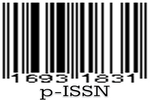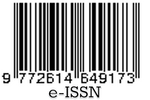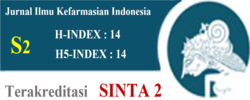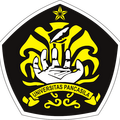Pharmacist’s Evaluation on Education Outcomes to Type 2 Diabetic Patients in Dr. Sardjito Hospital Yogyakarta
Abstract
Diabetes mellitus (DM) is a metabolic disorder caused by a defect in insulin secretion or insulin action. Number of diabetic patients will increase if strategies are not prepared for preventing and controlling diabetes. This study aimed to evaluate the outcome of pharmacist education on the level of knowledge, level of medication adherence and diet, as well as the A1C value of type 2 diabetic patients in Dr. Sardjito Hospital Yogyakarta. This research was conducted prospectively using Nonrandomized Concurrent Control Trial. The number of subjects recruited were based on a three-months period and subjects were taken by consecutive sampling method. There were two groups: one group received education intervention for 3 months, and the other group as control did not receive education. Data were analyzed descriptively and quantitatively using Independent T and T-Paired test. The results showed that patients in the control group have developed an increase in the level of knowledge and adherence by themself, on the other hand patients in this group showed a decrease in A1C values, but the decrease was not as big as patients in the intervention group. Patient’s adherence to diet did not improve in either control nor intervention group. It can be concluded that education given by pharmacist can increase knowledge and adherence towards medication and decrease the A1C values of DM type-2 patients.
References
2. American Pharmaceutical Association. APhA special report- A continuing education program for pharmacists: New approaches to insulin therapy for diabetes. 2001. Diambil dari http://www.aphanet.org. Diakses tanggal 10 Desember 2008.
3. Panja S, Starr B, Colleren KM. Patient knowledge improves glycemic control: Is it time to go back to the classroom? Journal of Investigation Medicine. 2005. 5(5):264-6.
4. Uddin I, Ahmad TJ, Kurkuman RA, Iftikhar R. Diabetes education: It’s effects on glycemic control. Annals of Saudi Medicine. 2001.21:1200-20.
5. Browne DL, Averyt L, Turner C, Kerr D, Cavan DA. What do patients with diabetes know about their tablets. Diabetes UK. Diabetic Medicine Journal. 2000.17: 528-31.
6. American Pharmacist Association. Principles of practice for pharmaceutical care. 2012. Diambil dari http://www.pharmacist.com/principles-practice-pharmaceutical-care. Diakses ulang tanggal 1 April 2013.
7. Ragucci KR. Effectiveness of pharmacist-administered diabetes mellitus education and management services. Pharmacotherapy. 2005.25(12):1809-1816.
8. Rantucci MJ. Pharmacists talking with patients : A guide to patient counseling. 2nd Ed. Maryland: Williams & Wilkins; 2007. 14-21.
9. Noris SL, Nichols PJ, Casperson CJ, Glasglow RE, Engelgau MM, Jack L, Snyder SR, Carande-Kullis VG, Isham G, Garfield S, Briss P, McCulloch D. Increasing diabetes self-management education in community settings. American Journal of Preventive Medicine. 2002. 22(45):39.
10. Jenhani M, Gaha K, Nabouli R, Gheidra A, Abdelaiz AB. Effectiveness of patient education on glycemic control in insulin treated patients in general practice. Diabetes and Metabolisme. 2005.31(4):376-381.
11. Chumney EC, Robinson LC. The effects of pharmacist interventions on patients with polypharmacy. Pharmacy Practice. 2006.4(3):103-109.
12. Krueger KP, Berger BA, Felkey B. Theories used in adherence research and practice. Medication adherence and persistence. In: National Quality Forum. Improving Use of Prescription Medications: A National Action Plan. Washington DC: National Quality Forum D-A1-A8; 2005.
13. Perkumpulan Endokrinologi Indonesia. Konsensus pengelolaan dan pencegahan diabetes melitus tipe 2 di Indonesia. Jakarta: PERKENI; 2011. 15-18.
14. Yannakoulia M. Eating behavior among type 2 diabetic patients: A poorly recognized aspect in a poorly controlled disease. The Review of Diabetic Study. 2006. 3(1):11-16.
Licencing
All articles in Jurnal Ilmu Kefarmasian Indonesia are an open-access article, distributed under the terms of the Creative Commons Attribution-NonCommercial-ShareAlike 4.0 International License which permits unrestricted non-commercial used, distribution and reproduction in any medium.
This licence applies to Author(s) and Public Reader means that the users mays :
- SHARE:
copy and redistribute the article in any medium or format - ADAPT:
remix, transform, and build upon the article (eg.: to produce a new research work and, possibly, a new publication) - ALIKE:
If you remix, transform, or build upon the article, you must distribute your contributions under the same license as the original. - NO ADDITIONAL RESTRICTIONS:
You may not apply legal terms or technological measures that legally restrict others from doing anything the license permits.
It does however mean that when you use it you must:
- ATTRIBUTION: You must give appropriate credit to both the Author(s) and the journal, provide a link to the license, and indicate if changes were made. You may do so in any reasonable manner, but not in any way that suggests the licensor endorses you or your use.
You may not:
- NONCOMMERCIAL: You may not use the article for commercial purposes.
This work is licensed under a Creative Commons Attribution-NonCommercial-ShareAlike 4.0 International License.





 Tools
Tools





















